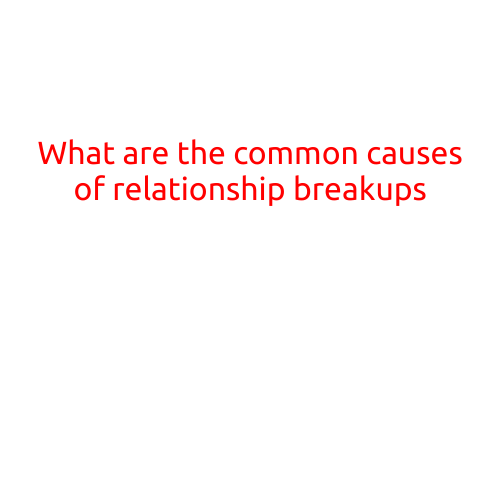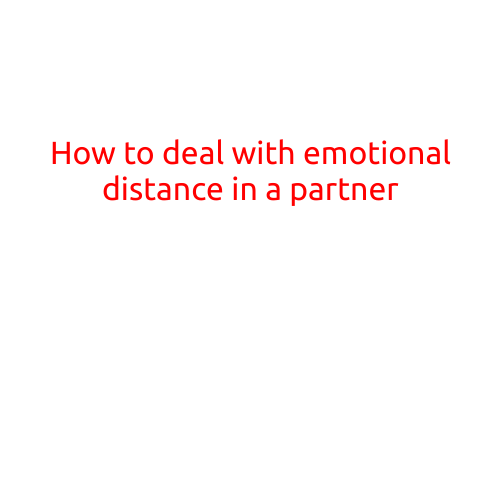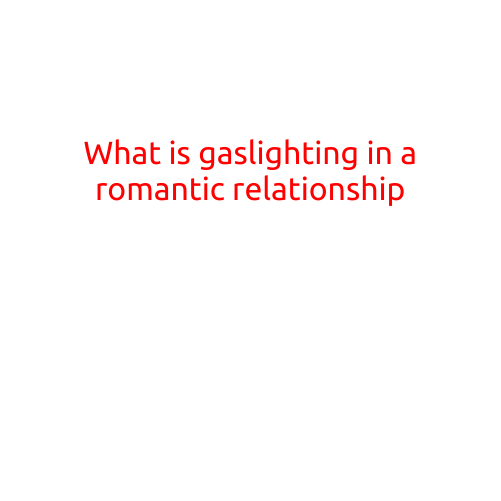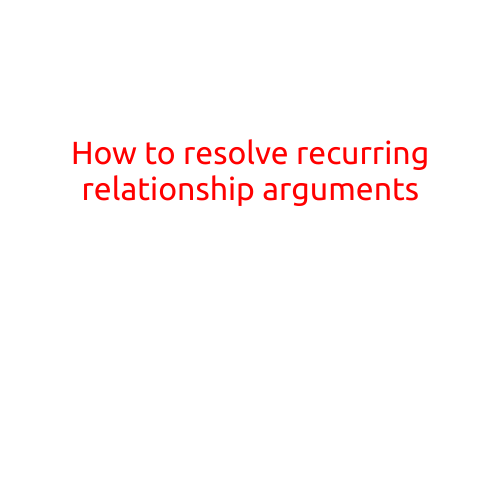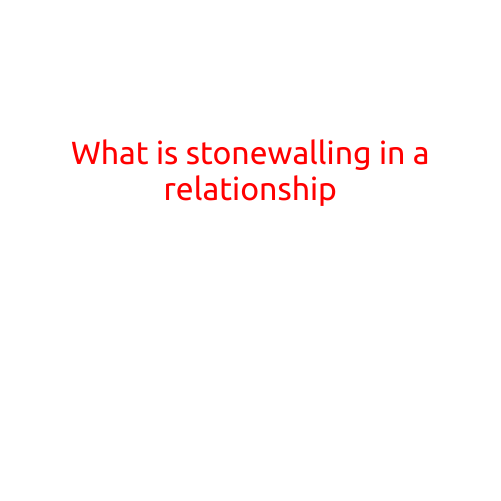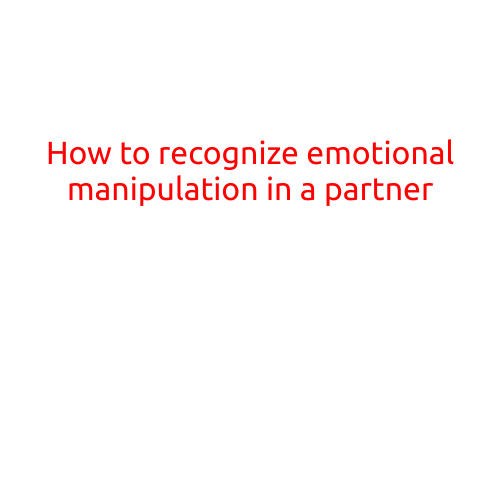
How to Recognize Emotional Manipulation in a Partner
Emotional manipulation is a powerful and insidious tactic used by some individuals to control and influence the behavior of others. In the context of romantic relationships, emotional manipulation can be particularly damaging, leading to feelings of sadness, anxiety, and low self-esteem. If you’re unsure whether your partner is emotionally manipulating you, this article will provide you with the tools to recognize the signs and take steps to protect yourself.
What is Emotional Manipulation?
Emotional manipulation involves using tactics such as guilt-tripping, blame-shifting, or gaslighting to control and influence your thoughts, feelings, and behaviors. Manipulators may use a combination of words, actions, and nonverbal cues to orchestrate this control. The goal of emotional manipulation is to create a sense of dependence or obligation in the target individual, making it difficult for them to make decisions or assert themselves.
Common Signs of Emotional Manipulation in a Partner
- Guilt Tripping: Your partner frequently makes you feel guilty for something you’ve done (or haven’t done), leading you to feel anxious or responsible for their emotions.
Example: “You always leave me waiting, you never put me first.”
- Blame Shifting: Your partner takes their mistakes or shortcomings and attributes them to you, making you feel responsible for their failures.
Example: “If only you had done things my way, this wouldn’t have happened.”
- Gaslighting: Your partner ignores or denies previous conversations, events, or agreements, making you question your own perceptions and memory.
Example: “That never happened, you’re just being dramatic.”
- Passive-Aggressive Behavior: Your partner expresses negative feelings indirectly through actions, such as sulking, procrastination, or giving the silent treatment.
Example: Your partner “accidentally” deletes your messages or “forgets” important dates.
- Controlling Behavior: Your partner tries to dictate what you wear, eat, or do, often under the guise of “concern” or “protection.”
Example: “You can’t be seen in public looking like that; you’ll embarrass me.”
- Emotional Blackmail: Your partner implies that if you don’t do something, they’ll be unhappy, disappointed, or even leave the relationship.
Example: “If you don’t make me happy, I’ll be miserable, and you’ll regret it.”
How to Recognize Emotional Manipulation
If you’re experiencing any of the following in your relationship, you may be a victim of emotional manipulation:
- Feeling anxious, resentful, or trapped
- Constantly walking on eggshells, worried about saying or doing something wrong
- Feeling guilty, ashamed, or responsible for your partner’s emotions
- Difficulty asserting yourself or expressing your needs
- Feeling like you’re “walking on sunshine” one minute and “in the dark” the next
Breaking Free from Emotional Manipulation
If you’ve identified emotional manipulation in your partner, it’s essential to take a step back and re-evaluate the relationship. Consider the following strategies:
- Set Boundaries: Establish clear limits and communicate them assertively. Remember, “no” is a complete sentence.
- Practice Self-Care: Make time for self-reflection, exercise, and activities that bring you joy and fulfillment.
- Seek Support: Reach out to trusted friends, family members, or a therapist who can provide emotional support and guidance.
- Re-Evaluate the Relationship: Ask yourself if the relationship is healthy, respectful, and fulfilling. Consider whether it’s worth preserving.
- Develop Empathy: Understand that your partner’s behavior is a reflection of their own insecurities, fears, or vulnerabilities, rather than any inadequacies in you.
Conclusion
Emotional manipulation in a partner can be a significant obstacle to a healthy and fulfilling relationship. By recognizing the signs and symptoms of emotional manipulation, you can take proactive steps to protect yourself and break free from its grip. Remember that you deserve a relationship that is built on mutual respect, trust, and open communication, not control and manipulation.
